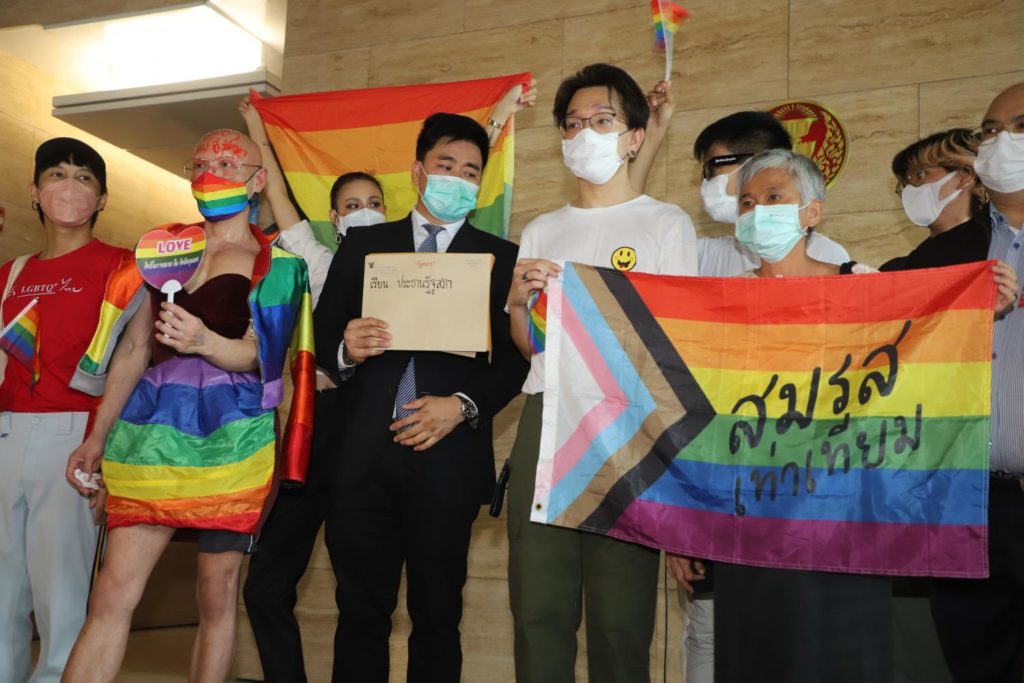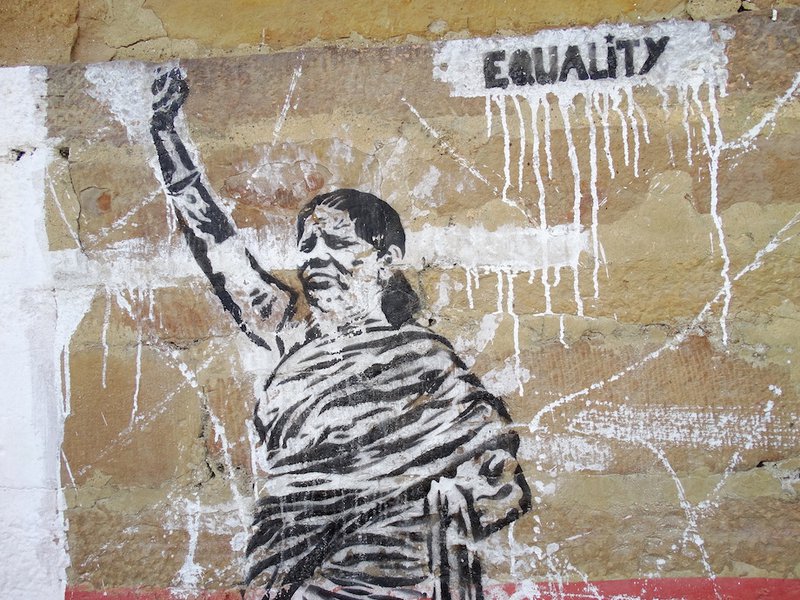
The Rainbow Coalition for Marriage Equality campaigns outside Thailand’s Parliament in support of Marriage Equality.
In his concurring opinion in the Dobbs v Jackson Women’s Health Organization, Justice Clarence Thomas wrote, “For that reason, in future cases, we should reconsider all of this Court’s substantive due process precedents, including Griswold, Lawrence, and Obergefell. Because any substantive due process decision is `demonstrably erroneous’, we have a duty to “correct the error” established in those precedents.” That is, `we’ have a duty to do away with Constitutionally protected legalized same-sex relationships and marriage equality, respectively, as well as respect, mutuality, and democracy. That decision was handed down June 24, 2022. As Virginia State Senator Adam Ebbin noted, “Nationally, it is clear there is a bull’s eye on the LGBTQ community.” Nationally … and globally. On June 20, the Osaka District Court ruled that the national ban on same-sex marriages is constitutional. (Last year, in “a landmark ruling”, the Sapporo District Court found the ban unconstitutional.) In both Hungary and Romania, national legislatures are considering so-called “gay propaganda” laws, of the sort instituted by Russia in 2013. Welcome to July 2022, where the Thunderdome continues to dominate our attention, but it’s not all gloom and doom. These are grim times. But they are not without hope. Hope has a place, from Thailand to Slovenia, between and beyond.
In Ukraine, faced with cataclysmic prospects, over 28,000 people signed a petition calling for legalization of same-sex marriage. As Anastasia Andriivna Sovenko, author of the petition, wrote, “At this time, every day can be the last. Let people of the same sex get the opportunity to start a family and have an official document to prove it. They need the same rights as traditional couples.” President Volodymyr Zelensky has ten days to respond. When every day can be the last …
In September 2021, 64.1% of Swiss voters supported the “Marriage for All” law in a national referendum. On Friday, July 1, 2022, the first same-sex marriages were formally conducted. As Aline, who married Laure on Friday, said, “It’s true that Switzerland has been a little slow. It’s not a moment too soon, after all. Now’s the time.” Now is the time.
On Friday, July 8, Slovenia’s Constitutional Court ruled that bans on same-sex marriage and adoption are unconstitutional. The Court ruled that discrimination is discrimation, and that discrimination against same-sex couples “cannot be justified with the traditional meaning of marriage as a union between a man and a woman, nor with special protection of family”. The Court ordered the Parliament to amend the law within six months.
On Friday, June 24, hundreds of same-sex couples in Mexico City were married in a city-funded mass wedding ceremony, a ceremony that had been cancelled for the previous two years, due to Covid. Mexico City legalized same-sex marriage in 2010. Since then, 26 of Mexico’s 32 states have done so as well.
Finally, in June, Thailand’s Parliament passed both a same-sex civil partnership and, separately, a marriage equality bill for further consideration. While activists would prefer full equality, either would be a step forward. If the Parliament passes either bill into law, Thailand would become the first South East Asian country to legalize some form of same-sex relationships, and to provide partners within those relationships with legal rights regarding personal and jointly held property and the right to adopt children. As LGBTQ+ rights activist Nada Chaiyajit explained, “It’s like we were able to open the first door toward marriage equality rights in Thailand. Up until now, every draft that we’ve had in the past, had no chance to even be considered during the process.” #MarriageEquality dominated Thai Twitter on the day the Marriage Equality Bill moved forward. LGBTQ+ activist Ray Laohacharoensombat reflected on the situation in Thailand, and beyond, “Hope has a place”. Hope has a place.
(By Dan Moshenberg)
(Photo Credit: Pornprom Satrabhaya / The Bangkok Post)
